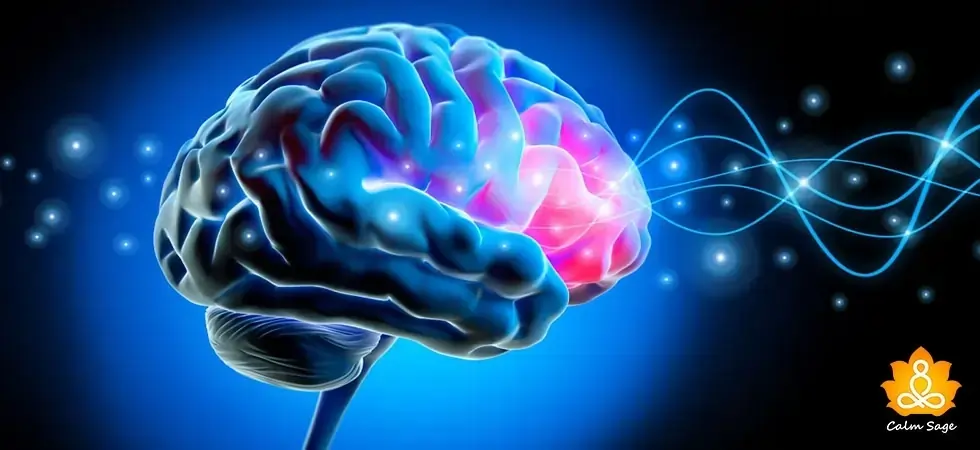Do You Have Type D Personality Traits? The Signs And What To Do

Have you ever been told that you have an air of gloominess around you? That you keep to yourself and your emotions hidden? Well, if you have, then you might have a Type D personality.
The idea of personality types was first introduced in the 1950s but over the years many psychologists and experts introduced many psychological theories and personality tests such as the Big 5 Model and MBTI – Myers-Briggs Type Indicator. As years move on, other less popular personality type tests have been identified including the one we’ll be exploring in this article.
We’ve already explored the Type A, Type B, and Type C personalities. Type A personality involves traits such as aggressiveness, competitiveness, and ambition. Type B personality is more laid-back, easy-going, and patient. Type C, however, can be a mix of the other two and can involve traits like calm yet controlled, and emotionally rigid but helpful.
Type D personality is someone who experiences stronger negative emotions, lacks self-confidence, extreme pessimism, and hopelessness. They feel higher emotional distress levels and keep their feelings to themselves as they fear rejection.
Let’s learn more about Type D personality traits, how to identify a Type D personality, the impact it can have on their life, and what to do next.
Type D Personality Traits
A type D personality was first labeled by a Belgian psychologist, John Denollet, in the 1990s. Here are some of the common characteristics and traits that were observed in Type D personalities:
- Excessive worrying
- Extreme sadness
- Higher irritability
- Higher pessimism
- Stronger negative self-talk
- Wanting to avoid social events
- Higher lack of self-confidence
- Extreme fear of rejection
- Being gloomy
- Extreme feelings of hopelessness
It was also observed that Type D personality is most closely associated with loneliness and higher levels of anxiety. Even though we all can have these experiences, Type D personalities are more prone to experience them.
Let’s take a look at how you can identify if you’re a Type D personality.
Are You A Type D Personality?
Did you know that to gain a better understanding of a Type D personality, experts have designed an assessment known as the Type D Scale-14 or DS14? This personality scale helps psychologists understand and determine the social shyness and negative effects Type D people go through.
It is said that Type D personalities have a higher level of negative emotions, motivations, and feelings as well as extreme social nervousness than others. Type D personality is more likely to shy away from social events because they have a greater fear of judgment and rejection. It could also be because they lack self-confidence.
Negative emotions, motivations, and feelings can also be experienced more by Type D personalities because they are more prone to sadness, excessive worry, and even irritability. They like to suppress their negative emotions and people around them are usually surprised to know that they were or are emotionally struggling.
Type D personality is also more likely to develop anxiety disorders because of the aforementioned tendencies.
Here are some questions you can ask yourself to identify if you are a Type D personality or not:
- Do you tend to bottle up your emotions and avoid expressing them?
- Do you find it hard to socialize with new people?
- Do you become easily overwhelmed in stressful situations?
- Do you tend to avoid social functions as much as possible?
- Do you often talk negatively to yourself?
- Do you often find yourself feeling extremely sad or extremely irritable?
- Do you tend to be in a low mood consistently?
- Do you worry excessively?
If you answered “YES” to any of these questions, then you may have a Type D personality. Please keep in mind that this is not a conclusive test to determine your personality type.
The Challenges A Type D Personality Faces
In a 2010 study, it was found that Type D personalities are likely to be at a higher risk of psychological distress and are likely to experience symptoms of anxiety, depression, fatigue, and pain. Even medically, Type D personalities are likely to be at a higher risk of cancer and COPD.
For Type D personalities, it can be harder to be vulnerable and the idea of expressing their emotional needs can be terrifying. They constantly fear judgment and rejection so to protect themselves from this, they close their emotional self from others and shut down, especially in distress.
Because of their constant fear of rejection and excessive worrying, Type D personalities can find it often difficult to build healthy relationships – personal, professional, and social. Their social shyness prevents them from connecting with others romantically, socially, and even professionals with their co-workers.
Even when a Type D personality connects with another person, they might find it challenging to maintain the relationship as their negative feelings can topple the dynamic. They are often viewed as someone with a perpetual air of gloominess and sadness.
Type D personalities are also more prone to;
- Feeling extremely stressed in their workplace
- Experiencing job burnout soon, and
- Feeling less accomplished
What To Do Next?
If You’re A Type D Personality
If you identify with Type D personality traits, then here’s what you can do:
1. Improve positive self-talk: You can learn to question your negative self-talk and change your perception of yourself. Take time to learn how to change your views and inner talk.
2. Learn to express emotions: No one likes dealing with strong emotions but rather than keeping them suppressed, learn to express them healthily.
3. Develop healthy coping skills: You can also learn to incorporate new habits and behaviors to deal with your distress. Developing healthy coping skills can also help you become aware of your distress.
4. Learn stress management: You can’t eliminate stress but you can learn how to manage stress. You can try breathing exercises, mindfulness, and even gratitude journaling can come under this.
5. Building relationships: Because of your fear of rejection, you find it hard to develop close bonds with others. You can learn to trust others, open communication channels, and seek the support of others where you need it. You can also try counseling to help you learn how to trust others.
If You Have A Loved One With Type D Personality
If you have a loved one with a Type D personality, then you can encourage them to open up with their emotions. Remember, their ability to hide their emotions and feelings can prevent you from looking at their inner struggles so it might come as a surprise when they open up.
In those times, you can offer your support and reach out to them. It’s not necessary to speak or talk to them, just let them know that you’re there for them and that they can trust you.
You can also quietly encourage them to seek professional help and guidance to help them learn how to express themselves emotionally.
You can also offer them an emotional space to help them open up. Type D personality fear rejection so make sure that you provide reassurance and encouragement.
Type D personality is someone likely to experience extreme distress and anxiety. Leaving it unaddressed can only add to their negative impacts and risk serious mental health repercussions.
With the right help, guidance, and encouragement, Type D personalities can improve and feel better.
I hope this blog helped you understand Type D personality traits and what to do next. For more, you can write to us at info@calmsage.com or DM us on social media. You can also share your thoughts in the comments below.
Take Care!




















